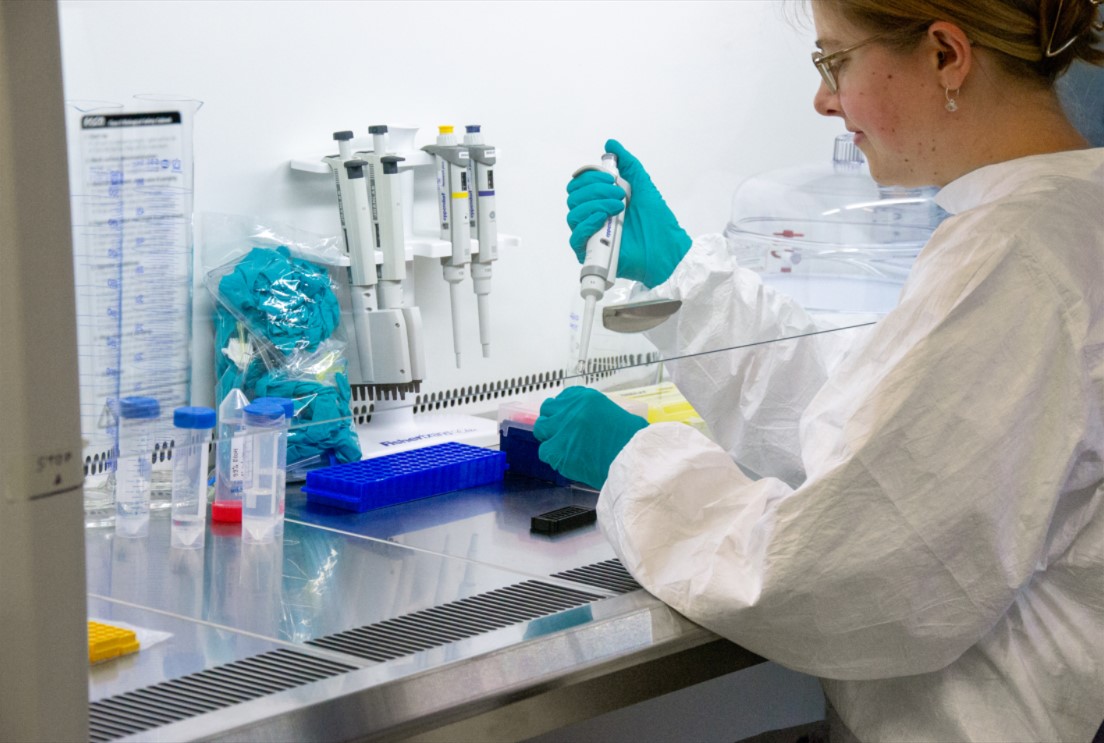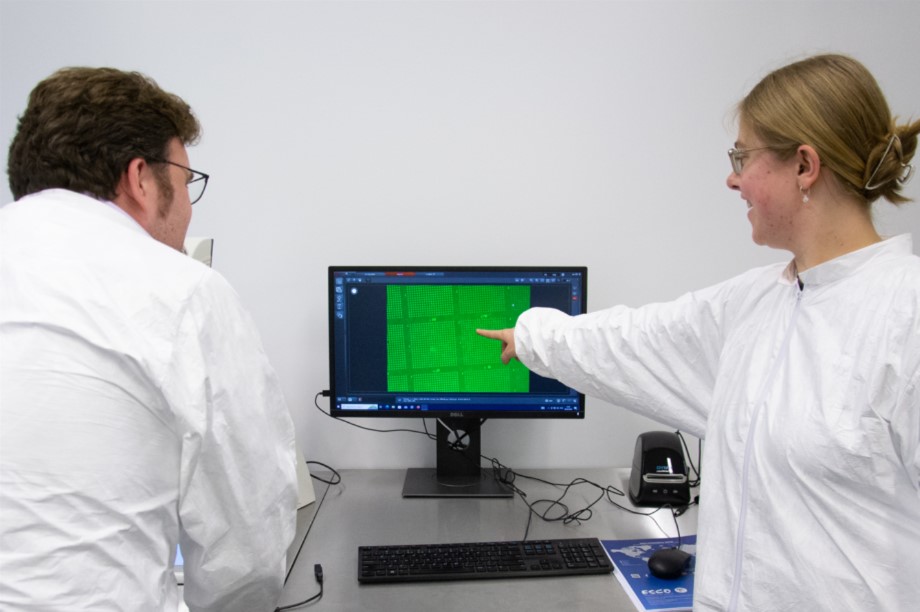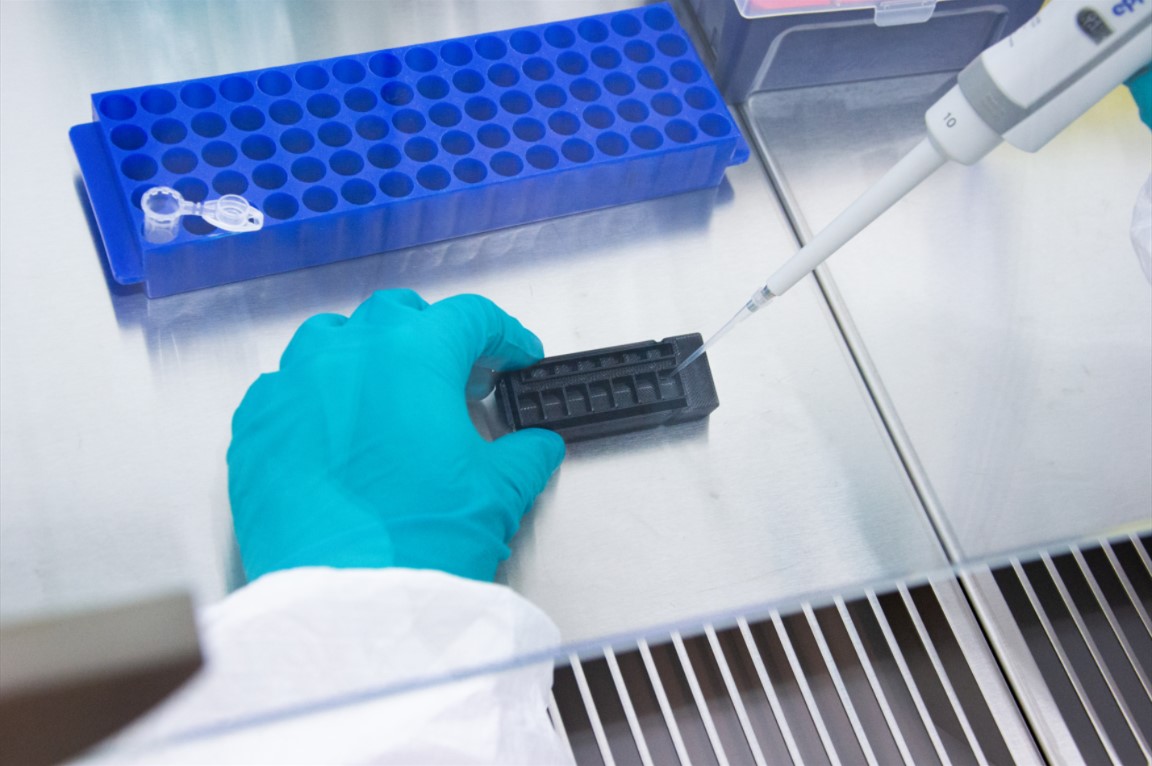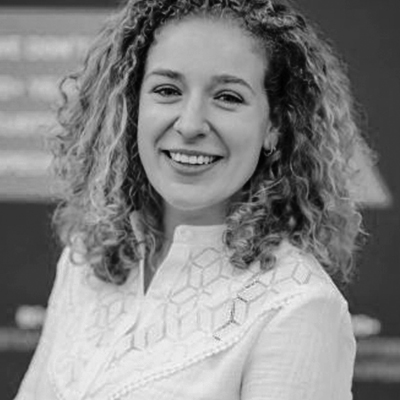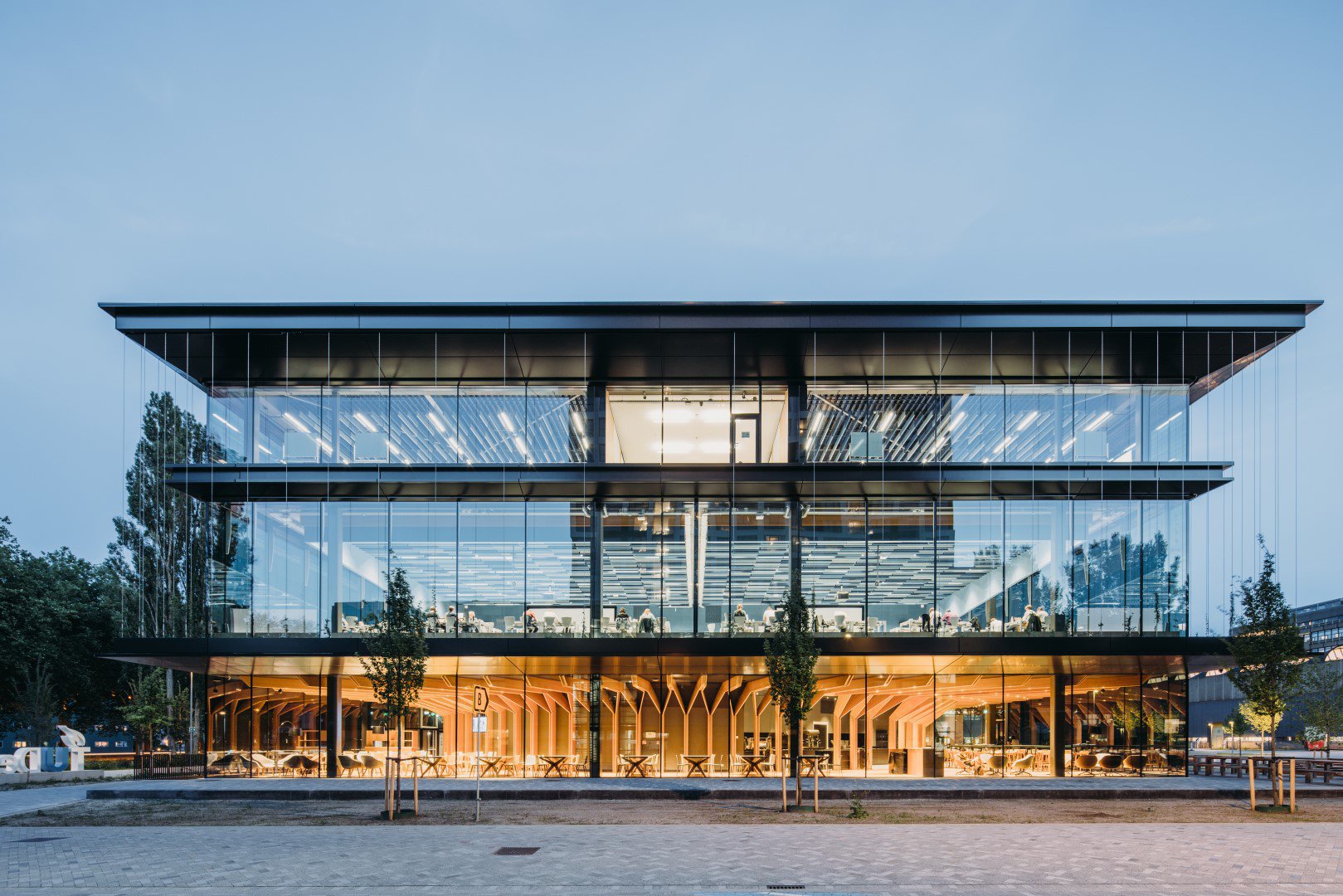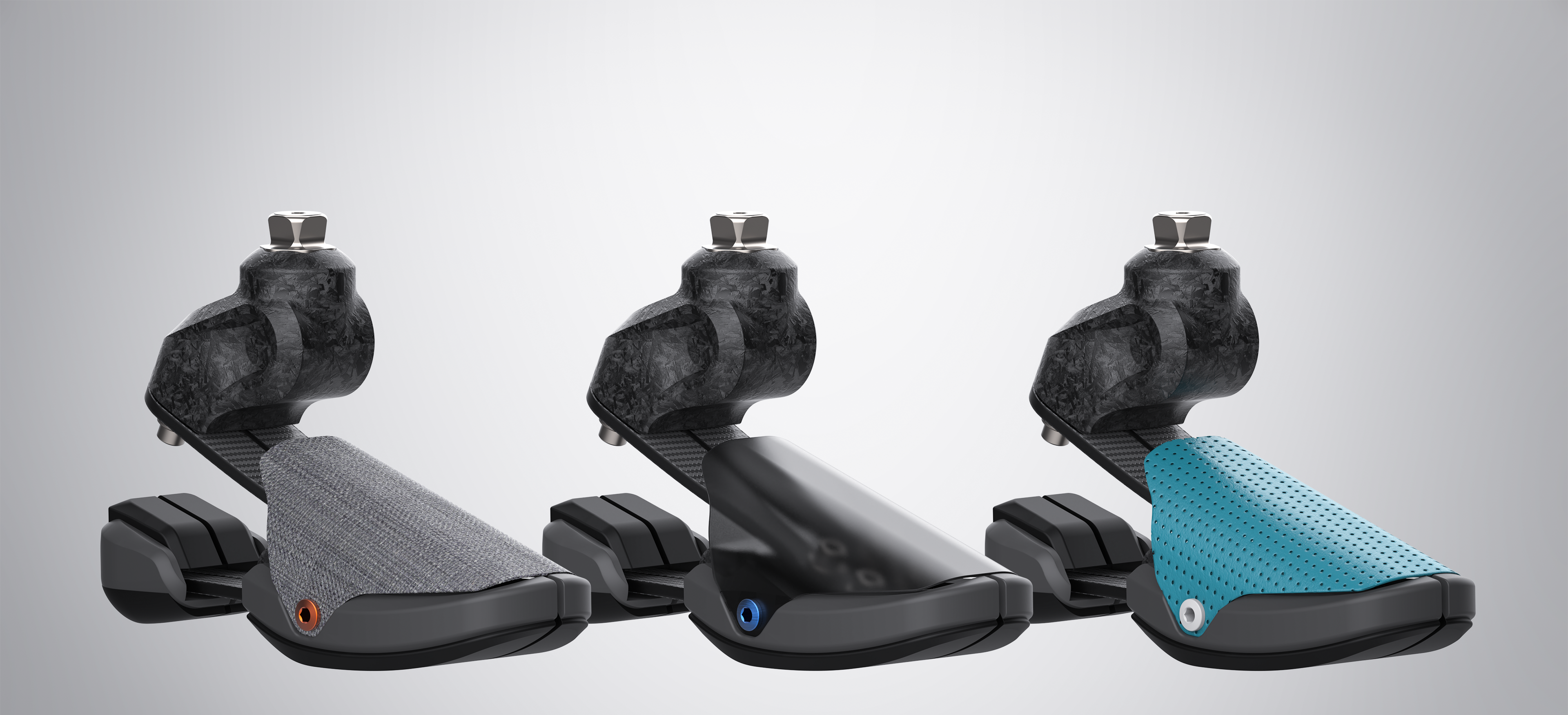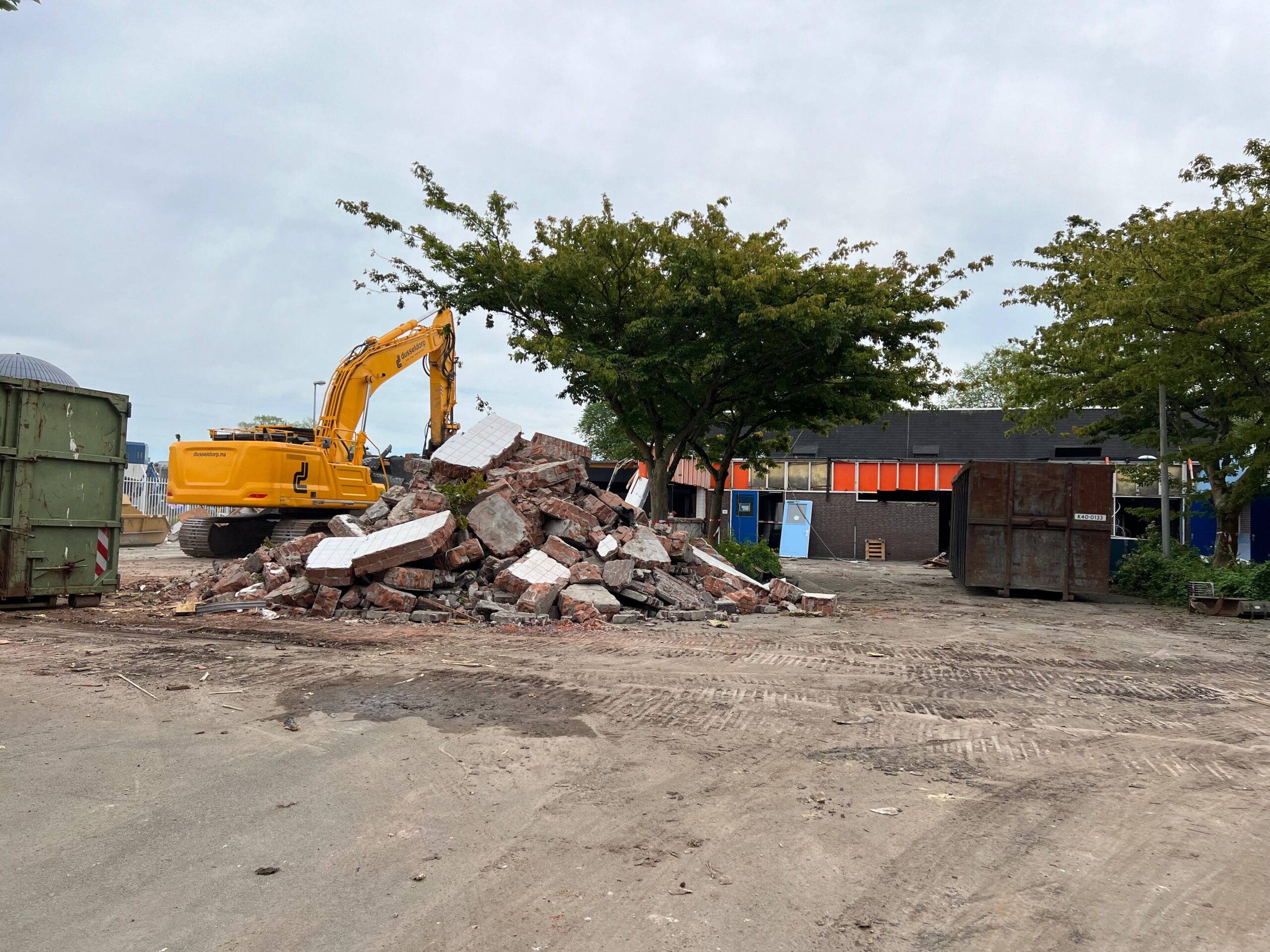TU Delft start-up SoundCell aims to make a revolutionary push in radically speeding up the process of finding the right antibiotics treatment for patients with bacterial infections through cutting-edge graphene membrane sensors. The company successfully collaborates with Delft hospital Reinier de Graaf: Both hospital and start-up gained valuable insights in working together. Founders Irek Roslon and Aleksandre Japaridze explain the importance of Delft knowledge institutions working together, pushing innovation.
During their PhD and postdoctoral research, Roslon and Japaridze realised they might be onto something. While studying cell vibrations using graphene, a material existing of a single layer of carbon atoms. The graphene membrane sensors they work with, are sensitive enough to measure the (nano)motions of single bacterial cells and identify if they are alive or dead. “It’s a fairly new field of research, so it felt like we were started out a bit like mad scientists”, laughs Japaridze.
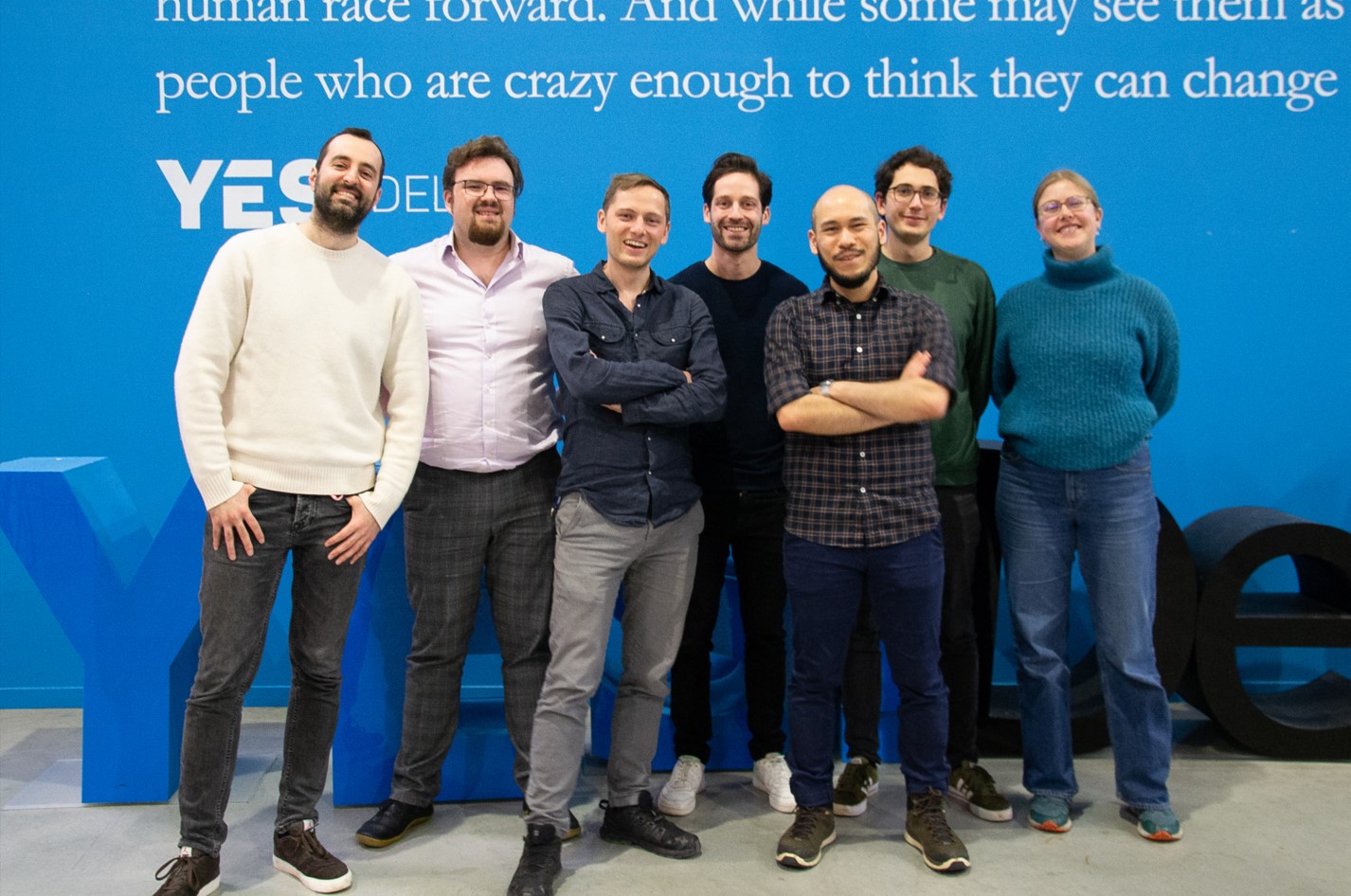
Founders Aleksandre Japaridze (left) and Irek Roslon (third left) together with their team at YES!Delft © SoundCell
The two needed to find common ground in the fields of graphene materials research and bioscience. Once the technology proved itself, the time was right to figure out how to take it out of the lab and into the real world – and where to employ this exciting new technology.
This is where TU Delft’s Impact Studio played a pivotal role, explains Roslon. “They challenged us to talk to various industries: pharma, food, agriculture – and their questions led us to hospitals. We talked with so many healthcare professionals: microbiologists, oncologists, clinicians and researchers involved in drug development.” SoundCell started getting the same answers to their questions from specialists: the need to figure out faster if medicine is working or not during an infection.
The difference between life and death
SoundCell’s technology can help figure out whether a bacteria is alive or dead. Which, in turn, can help the hospital figure out if antibiotics are needed and/or if antibiotics are working (killing bacteria). This process used to take days, explains Roslon. “But with our sensors, we can figure it out in hours. Which can make a massive difference in treatment of patients, and sometimes could even be the difference of saving or losing a patient.”
After the Impact Studio, connecting SoundCell to the Reinier de Graaf hospital got things really moving. The hospital helped validate SoundCell’s technology and improving the platform used to measure bacterial activity. Now, both parties are picking the fruits of years of hard labour, Roslon beams. “Before, we had to transfer samples from the hospital to our lab on campus. This summer, the first actual machines will be placed and used on-site in the hospital.”
Listening to your audience
Roslon and Japaridze can’t stress enough the importance of the input given by the diverse team of specialists at the Reinier de Graaf hospital. The first version of their machine was a bulky, complicated affair that demanded careful handling. Japaridze: “we were told to get rid of all the undecipherable code, loose cables and automate a lot of things.” He laughs. “And we put a nice case to cover it all up! But in all seriousness, it’s exactly this feedback that helped us improve the product for end-users.”
The willingness of the full cadre of healthcare professionals at Reinier de Graaf to innovate, learn new things and give feedback was a ‘wow moment’ for SoundCell’s founders. Japaridze: “They were truly sharing their experience, knowledge and were open to the novelty of this technology. It was incredibly helpful for us. These people are extremely busy, with lots of patients to take care of. Still, they always had time for us. We expected a more conservative mentality and little time for our moonshot attempt – and it was such a pleasant surprise that it was the total opposite.”
Tackling everyday challenges
SoundCell shares the hospital’s vision on the importance of innovation. Society is facing tough challenges with an ageing society and rising healthcare expenses. Innovation can make a difference in keeping expenses at bay. Roslon feels that researchers need to reach out, learn where problems are and where the biggest gains can be made. “It’s not just about pushing scientific frontiers. It’s about figuring out common, everyday challenges and tackling them.”
It’s also precisely why SoundCell valued working with Reinier de Graaf and the Reinier Haga MDC department. While the start-up also works closely with the academic Erasmus MC in Rotterdam, general hospitals typically have more bulk operations and volume, offering valuable information on improving new technology.
Standing on the shoulders of giants
SoundCell looks forward to the summer of ’24, when it gets insight in lab technicians working with their machines and compare that effort to the traditional approach of measuring medicine effectivity. It plans to iterate on machines, which will lead to a viable product to enter the market, with SoundCell currently aiming for early 2027.
Roslon mentions the MALDI-TOF machine, which was a massive breakthrough in the 90’s. Before MALDI-TOF, it took days to figure out what was the cause of an infection. MALDI-TOF helped reduced that to half an hour. But MALDI-TOF solved only half the puzzle, because doctors still have to figure out what medicine works, because of possible resistance of the patient. Roslon: “with SoundCell, we feel we have the second part of the puzzle, answering that question within hours. It’s really incredibly motivational to work on something so potentially revolutionary.”

